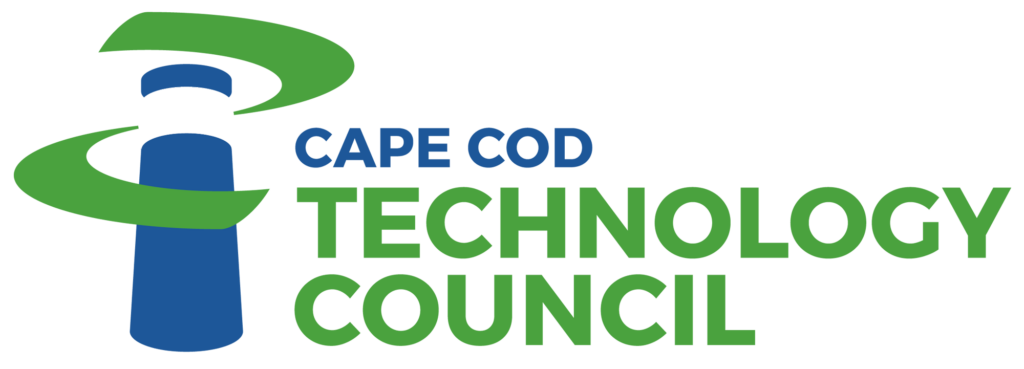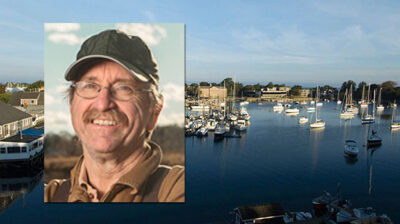Previously only held in the Far East, the International Oyster Symposium came to Massachusetts in October, at the Marine Biological Laboratory in Woods Hole and at the Sea Crest Beach Hotel in West Falmouth, MA. Past conferences, covering oyster science, industry, and culture, have been held in Japan, Taiwan, China, Tasmania, and Vietnam.
In preparation for the symposium, Cape Cod Technology Council hosted First Friday at Marine Biological Laboratory (MBL), with Roger Williams University Associate Professor of Marine Biology Dr. Dale Leavitt.
“The oyster is an internationally renown seafood, grown and consumed across the world,” Leavitt said. “Whenever there is something that’s that much of a popular item it becomes something that everyone studies.”
Aquaculture is one of the most rapidly growing farm endeavors in the U.S., he said, with new technology being developed to grow oysters.
“It’s the aquaculture end of things where technology is really kicking into gear,” Leavitt explained. “We’re taking technology that’s 30 to 50 years old and modernizing it to be more efficient. There’s been some fairly substantial improvements to the traditional way of growing oysters. We’re seeing technology make significant contributions.”
Aquaculture-related projects Leavitt has been involved in include environmental impact studies, seawater system design and engineering, economic development activities and aquaculture education and training. One new technology they’ve been working on is integrating photovoltaics with aquaculture. They now have a solar powered nursery system for oysters that’s been in operation for six years, and recently did the same for a fish farm, run 100% by photovoltaics. Leavitt has also set up a nursery and farm at Roger Williams University as an experimental platform to look at ecological development.
The flip side of oysters is the environmental impact they have. Leavitt refers to them as ecological engineers, because of the host of ecological services they provide to the environment. They live on the bottom of estuaries, bays, tidal creeks and sounds, creating a three dimensional habitat for other species. Where these reefs exist, fish flourish.
More recently people have realized oysters are an important processor of nitrogen. “Our coastal bays are highly nutrified,” Leavitt said, “receiving large inputs of nitrogen and phosphorous from sewage treatment plants, highway runoff, and other land based operations. That stimulates excessive microscopic algae growth in our bays.”
That microscopic algae is the food of the oyster. Oysters are very good at extracting algae cells out of the water, making them a wonderful natural filter system for our bays. “It’s helping to manage some of the excessive nutrient input,” Leavitt said. “Between the habitat value and the ability to remove nitrogen, oysters turn out to be an important ecological factor in our estuaries.”
In addition to his position at Roger Williams University, Leavitt is a Research Associate with the Woods Hole Oceanographic Institution (WHOI) where he specialized in Fisheries and Aquaculture, and a joint appointment as Aquaculture Specialist and Extension Program Leader with the Woods Hole Sea Grant program and the Cape Cod Cooperative Extension Programs. Dr. Leavitt is a member of the Board of Trustees of the Massachusetts Aquaculture Association and the Technical Advisory Committee for the Northeast Regional Aquaculture Center of the USDA. He is the Scientific Advisor to the Shellfish Advisory Panel of the RI Marine Fisheries Council, is a member of the Biosecurity Advisory Board of the RI CRMC and is a member of the CRMC Aquaculture Regulatory Working Group. He is the author of numerous scientific and technical articles.
At First Friday, Dr. Leavitt gave CCTC members and guests an overview of the aquaculture industry as well as restoration work, topics that were also covered in the symposium.
In a press release Massachusetts State Senator Dan Wolf commented “We are thrilled that Cape Cod will be the host to the World Oyster Society’s symposium. The IOS6 provides an important opportunity for our local industry to make strong connections to the world market, and exchange cutting edge research and best practices to benefit the global industry and our environment.”

